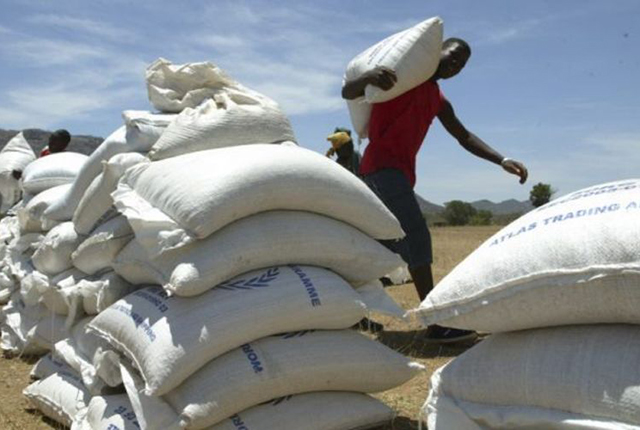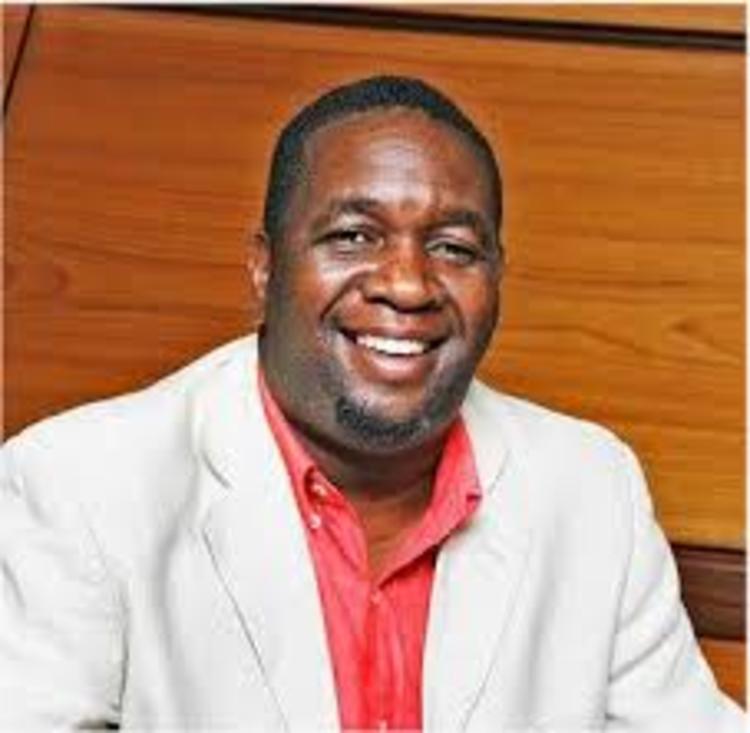The donor’s dilemma: Food or cash handouts?


“If the donors want to help us to get out of poverty, they should give us cash and we choose what to do with it”
Sekai Nzenza on Wednesday—
“THE donor is not feeding the poor,” declared our neighbour Jemba last Saturday. Everyone sitting on the village bench agreed, except my brother Sidney who quickly asked them what they meant by such a statement. Some people around our village and many other places in the districts have so far received seeds, fertiliser, beans, cooking oil, rice and maize.
“They did not work for it, it was just given to them for nothing,” Sidney said, reaching into the cooler box for another beer.
We were all sitting on the long bench in front of my mother’s village hut, where our neighbours and relatives come over to sit and chat or they come to share a beer with my brother Sidney. I come here frequently with my cousin Piri and sometimes with my cousin Reuben, the one who used to live in Australia but has since returned home.
On Saturday evening, it was just Piri who came to the village with me. Reuben is still in Australia because he has to settle his children in school before he comes back home. On the bench was Jemba, the ironsmith and general handyman, Sinyoro the hunter, fisherman and drum maker, Makumbe the gardener, Bhure the builder and Bokina the fencer. They all work here in this village homestead and the Simukai community project when there is a job to be done.
Standing in front of the village hut wearing a yellow T-shirt, jean skirt, flat yellow shoes, with plaited hair and carrying a cold beer in one hand, Piri said, “Donors have been coming here for many years but we are still poor and hungry. Where is the money going? If I was still living here, I would not bother to walk 10 kilometres to the food distribution centre just to get my name registered.
Then I walk back again to wait for two litres of cooking oil and beans if I am lucky. Or I get nothing after walking like that. No. I will not go there.”
“Munenge matogona Chihera, nekuti kuenda ko kufambira mahara. Bvunzai isu tafambira mashangu rapata rutatu” said Jemba, meaning he had gone to the food handout places three times and received nothing. Sidney said the donors and the Government were feeding the poor. Not everyone was going there and coming with nothing.
There was a long argument on the bench until the questions ended up being directed to me, as they usually do. Although I often avoid arguments by saying I do not know, this time, I had an answer based on my past knowledge living in the Diaspora.
I used to work for a big NGO for more than 14-years. In those days I travelled through Southern Africa during drought, monitored food distribution to child headed households in Rwanda after the genocide and at one time I carried out needs assessments of people affected by the tsunami in Jaffna Province, Sri Lanka, when the Tamil Tigers were still fighting over there.
Some years later, I came back to this village. When my mother was still alive, we started the Simukai project to rebuild the school, develop market gardens and nutrition programmes for the children. I wanted to promote empowerment and sustainable development in my own village. But I soon discovered that this was not an easy road.
I learnt that the community is not one homogeneous group. There are power dynamics in each group and hidden conflicts abound. An outsider will not see some of the issues that stifle development inside a village community.
Councillor, Sabhuku the village head and other elders are the respected influential traditional leaders around here. When the donor is coming, the Councillor informs Sabhuku who then tells Ndodye, the village crier or loudspeaker, to shout messages to the people. At dawn, you will hear Ndodye shouting. His voice goes far. He will give you information on anything, from going to register your name for food handouts, to the nhimbe or communal working bee, political meetings and farming workshops. His most common announcement during the dry season was about beer or forthcoming village ceremonies.
Last week, Ndodye told everyone to go and register for food handouts. They did. Each Sabhuku was told by the Councillor to identify 10 most vulnerable and poor households in his area before listing everyone else.
“But how does Sabhuku know the poorest around here?” Jemba asked. “We are all poor and vulnerable. I do not have a proper blanket. I sleep on a mat. I need a bucket to carry water and a cooking pot. I do not want beans or rice. I just want mealie-meal and cooking oil. So, why does the donor not give me money for what I need, instead of promising to give me beans or what he wants to give me? I go there to register.
“Then I go back there to wait in line all morning only to be turned away because I am not poor and vulnerable enough. But you see Sabhuku’s wife, his mother-in-law and other relatives carrying donor handouts to their houses. Then they hire us to work in their fields and they pay us with cooking oil received from the donor?” Jemba shook his head vigorously.
“Why don’t you complain about these problems at the food handout place? I am sure they will listen and address your concerns,” I said.
Piri laughed and I looked at her with questioning eyes. But she laughed even more, this time with sarcasm. And I had to ask her why she thinks lodging a complaint about unfair practices at food distribution centres was funny.
“Sis, I will not answer. Let Makumbe do the speaking,” she said, nudging Makumbe to speak.
But, before Makumbe could do so, Bokina stood up and smoking tobacco rolled up from a piece of today’s newspaper, he said. “If you complain when they are handing out food, someone powerful will tell your Sabhuku and his people to move aside. ‘You are not organised!’ he will say.
“Then everyone is pushed aside and people from our village will turn to you with angry eyes saying; now we will get nothing because you chose to lift your armpits in public. There is no room for complaints at the food distribution centre I tell you.” The people on the bench nodded saying ichokwadi. It is true.
Like Jemba and Bokina, Makumbe was not happy about the food handouts process either. He went to register his name three times, but each time he stood in line to receive something for his large family of four wives and 12 children, he was pushed aside because Sabhuku and other people said he was not poor or vulnerable.
“Aika, Makumbe, you want us to sit in the same bucket with you at food handouts?” Jemba asked. “You are poor, that is true. But your wives work hard because your church says they must feed themselves. There should be criteria of people who are poor based on how poor they are. Our poverty is not the same. Is that not right?”
I had to agree. I recalled that we used to do vulnerability assessments moving from one village to the other in the Uzumba-Maramba-Pfungwe areas of Zimbabwe back in 1996. Then there were complaints from communities that field offices were coming to collect data about households then they never came back to report to the people about their findings.
Such data was kept in the big offices of donors in America, Australia, UK, Canada or Europe. People did not eat data. Some donors changed strategy and stopped village based research. They chose to work alongside Government departments and local leaders so they can get to the people in order to assess poverty and basic needs.
“You all complain too much. What do you want the donor to do?” asked Sidney. Piri quickly answered, “Everyone has different needs. Not everybody wants beans or cooking oil. At the food distribution centres, there should be a special line for polygamists with many children, widows with orphans, widowers, families with three or five children, disabled people and those who are very old”.
Some of us agreed that Piri had good criteria. But who was going to walk around and write down the individual needs of people in the villages? Then Bokina said, “I have an answer. The donor should give us money. We can then choose what we want to do with it.” I said there were places in Zimbabwe and other countries where people are receiving cash as aid and not food.
“Men will spend all the money on beer,” Piri said. We all laughed. But Bokina did not argue with Piri. Instead, he said, “Fine, give the women money and they will not let the children starve. I know my wife will spare one dollar from the donor for me so I can buy a beer. If the donors want to help us to get out of poverty, they should give us cash.”
Dr Sekai Nzenza is a writer and cultural critic.









Comments